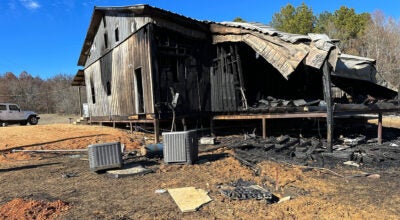West Nile Virus reaches Lincoln County
Published 9:28 pm Monday, July 31, 2017
Lincoln County saw its first reported case of West Nile Virus this year, while a Grenada County resident died from the illness, according to a recent report from the Mississippi State Department of Health.
The Lincoln County case and Grenada County death are two of nine new human cases reported last week to the MSDH, bringing the total in the state to 19 for 2017.
West Nile cases were also reported in Forrest (2), Grenada, Hinds, Jones, Madison, Rankin and Scott counties. The peak season for West Nile Virus is July through September, although cases can occur at any time of the year.
“We are in the time of year that is most active in the state,” Dr. Paul Byers, MSDH state epidemiologist, told The Daily Leader Monday.
Symptoms of the infection are often mild and may include fever, headache, nausea, vomiting, a rash, muscle weakness or swollen lymph nodes, Byers said.
Many people may be infected with West Nile and not show symptoms, but in a small number of cases, the infection can cause serious complications, even death, he said.
So far this year cases have also been reported in Covington, Grenada, Hinds, Humphreys, Jones, Leflore and Perry. In 2016, Mississippi had 43 cases of West Nile Virus reported and two deaths attributed to the illness. One death was reported in 2015, seven in 2014 and five each in 2013 and 2012.
“All folks in Mississippi need to be taking precautions,” he said.
Byers said doctors tend to see the severe complications in individuals over the age of 50, even more so over the age of 60. But the virus can cause illness at any age, he said.
“If you’re feeling the symptoms, it’s not a bad idea to seek treatment with your family medical practitioner,” he said.
Because the virus has been detected in mosquitoes throughout the state, residents in all counties should take the following precautions for protection against mosquito-borne illnesses:
• Avoid mosquitoes whenever possible.
• Stay indoors or take personal protective measures, especially between dusk and dawn when mosquitoes are most likely to feed.
• Use mosquito repellent with DEET (up to 30 percent for adults and 10 percent or less for children two years to 12 years of age.
• Remove all sources of standing water around your home and yard to prevent mosquito breeding.
• Wear loose, light-colored, long clothing to cover the arms and legs when outdoors.
• Avoid areas where mosquitoes are prevalent.
Vector Disease Control International is responsible for spraying for mosquitoes within Brookhaven’s city limits, including annexed areas. Regional Director Kris New said Vector traps mosquitoes and tests for West Nile. If mosquitoes in an area test positive, Vector will “step up spraying in that area, maybe three nights in a row and also focus on larviciding in that area,” he said.
Larvicides target larvae in the breeding habitat before they can mature into adult mosquitoes and disperse. Larvicide treatment of breeding habitats helps reduce the adult mosquito population in nearby areas.
New said culex, the brown Southern house mosquitoes, like to stay close to the place they were hatched. And they like to breed in stagnant water, especially water that is high in organic matter, he said.






